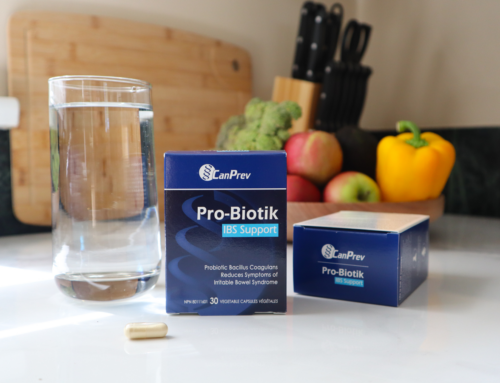Temperatures are rising into the double digits, and you know that means – fresh spring blooms, sounds of birds chirping, and long sunny days. While warmer weather can be very enjoyable, those with allergies know the struggle of having to deal with stuffy noses, watery eyes, and other uncomfortable symptoms during this time.
Understanding the science behind your allergic reactions can help you successfully tackle this allergy season and better manage your symptoms. So let’s dive in.
Your body during an allergic reaction
Simply put, allergies are caused by your immune system reacting to a foreign substance. This can be anything from pollen, mould, or dust to certain foods that your body is sensitive to. The immune system is responsible for producing substances called antibodies when it encounters one of these foreign particles or allergens. Antibodies identify a particular allergen as harmful to your body, even when that’s not really the case.
After you come in contact with an allergen, your immune system immediately sends out its response team to make things right and fight off the perceived invader. When an allergen triggers an allergic reaction, the immune system produces immunoglobulin E (IgE), an antibody that is responsible for triggering the release of histamine. Histamine is a chemical that is released into your bloodstream by white blood cells when the immune system identifies an allergen. Histamine transmits messages through nerve cells and moves fluid through blood vessel walls. It also plays a role in numerous bodily functions such as itching, inflammation, blood vessel dilation, and muscle contraction. These symptoms are all part of your immune system’s effort to rid the body of potentially harmful pathogens, and that’s when you experience a wide range of not-so-fun symptoms you may be familiar with.
What are some common allergy symptoms?
Depending on the allergen your body comes in contact with, the allergic reaction and associated symptoms will vary. Here are some common allergies and their symptoms.
Allergic rhinitis (Hay fever – triggered by allergens like pollen, grass, weeds, dust, etc.)
- Sneezing
- Itchy nose, eyes, or roof of your mouth
- Watery, red, or swollen eyes
- Runny, stuffy nose
Food allergies
- Tingling feeling in your mouth
- Hives
- Swelling in the lips, tongue, face or throat
- Anaphylaxis (a state of shock after encounter with an allergen that causes more symptoms including loss of consciousness, a drop in blood pressure, and lightheadedness)
Medication or drug allergy
- Hives
- Itchy skin
- Rashes
- Swelling in your face
- Wheezing
- Anaphylaxis
Insect sting allergy
- Swelling around the sting area
- Itching or hives throughout your body
- Cough
- Chest tightness
- Wheezing or shortness of breath
- Anaphylaxis
Eczema (Atopic dermatitis)
- Itchy skin
- Redness on the skin
- Flaking or peeling of the skin
Pet allergy
- Sneezing
- Watery, red or itchy eyes
- Runny nose
- Nasal congestion
- Cough, chest tightness, shortness of breath and wheezing
- Skin rashes or hives
While in some cases allergies can be developed later in life, the most common cause is having a family history of allergies or a similar condition. Scientists aren’t exactly sure why some people struggle with allergies and others don’t, as well as why some are born with allergies and others develop them in the future. However, studies do hint at the fact that your genetic history and surrounding environment play a role in determining your specific allergies. The good news is that there are many natural remedies that can help maintain the symptoms that result from these allergies.
Allergy season standbys
Quercetin
Quercetin is one of the most abundant antioxidants in the diet and can be very beneficial when it comes to surviving allergy season. It’s a pigment that’s naturally found in flavonoids and is known to help reduce inflammation, allergy symptoms, and blood pressure levels. You can increase your intake of quercetin by eating foods like onions, apples, grapes, berries, broccoli, citrus fruits, and green tea.
pigment that’s naturally found in flavonoids and is known to help reduce inflammation, allergy symptoms, and blood pressure levels. You can increase your intake of quercetin by eating foods like onions, apples, grapes, berries, broccoli, citrus fruits, and green tea.
But in the thick of allergy season when your body needs extra support, it can be helpful to incorporate a dietary supplement like CanPrev’s Quercetin capsules. This formula contains 500 mg of quercetin naturally sourced from the flower of the Japanese pagoda tree. It’s designed to help reduce histamine levels and seasonal allergy symptoms by stabilizing mast cells and basophils, which are known to create inflammation and hypersensitivity during allergic reactions. If you’re looking for a faster delivery system, try Liposomal Quercetin. This liquid liposomal formula contains vitamin E and is designed for superior absorption and sustained effects with a patented delivery system that swiftly and safely transports active nutrients directly to your cells. Liposomals are especially suitable for those with digestive issues that usually have a hard time absorbing the nutrients they need for maintaining optimal health.
Omega-3 fatty acids
Another nutrient that does wonders for combatting allergy symptoms is omega-3 fatty acids. Omega-3s have anti-inflammatory properties that help reduce inflammation within the body. There are two types of omega-3 fatty acids: docosahexaenoic acid (DHA) and eicosapentaenoic acid (EPA). Studies show that omega-3s have protective effects in treating inflammatory diseases like asthma and other allergies. If you’re looking to load up on omegas, try eating fatty fishes like mackerel, and salmon, as well as avocados. You can also take a supplement such as Omega Twist, which comes in two flavours: Peachy Mango and Tangerine Tang. Omega Twist formulas contain highly concentrated EPA and DHA omega-3s with added 333IU of vitamin D with each serving.
Struggling with allergies when the weather is so pleasant outside is not fun. But taking precautions to breathe easy and combat your allergy symptoms with natural remedies like quercetin and omega-3 can help you enjoy these warmer months.
Sources:
Allergies
Understanding the Science Behind Allergies, Antihistamine Response
Allergies: A Scientific Explanation
What Is Quercetin? Benefits, Foods, Dosage, and Side Effects
Role of omega-3 fatty acids and their metabolites in asthma and allergic diseases
What Causes Allergies?
Pet Allergies







Leave A Comment